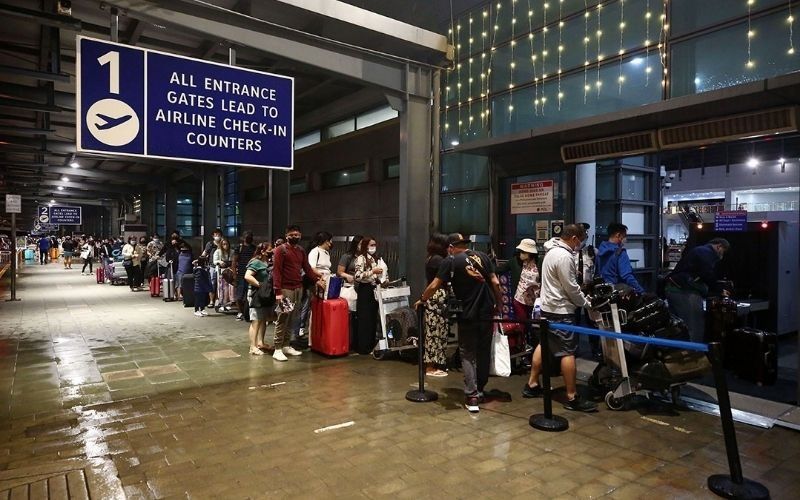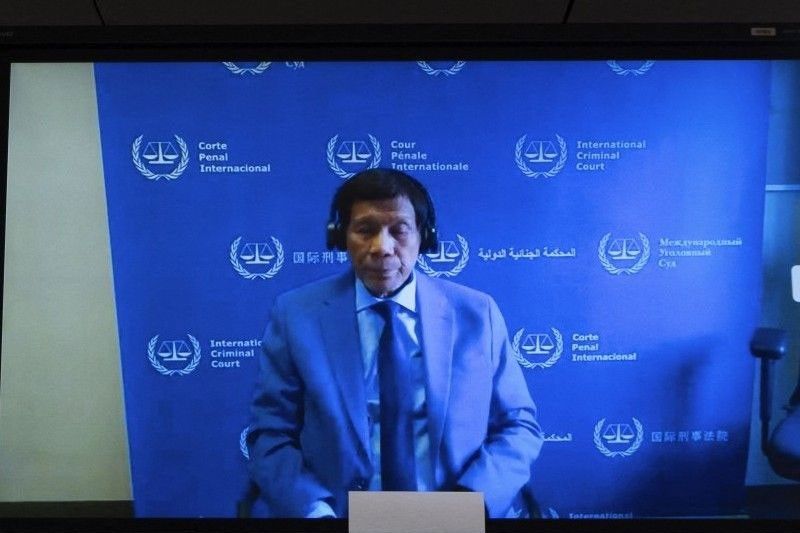
Upgrade to High-Speed Internet for only ₱1499/month!
Enjoy up to 100 Mbps fiber broadband, perfect for browsing, streaming, and gaming.
Visit Suniway.ph to learn
MANILA, Philippines — A fresh push to amend the Bank Secrecy Law is gaining ground in Congress. But what’s behind this renewed effort — and what exactly do lawmakers want to revise?
Republic Act 1405, or the Bank Secrecy Law, has gone 75 years without any amendments, despite being recognized as one of the strictest bank secrecy laws in the world.
Its provisions have also been viewed as a major obstacle to promoting transparency and strengthening anti-corruption measures in government, especially among government officials.
A recent case drawing attention to the Bank Secrecy Law involves former president Rodrigo Duterte and Vice President Sara Duterte, who have been accused of handling billions in bank transactions tied to the illegal drug trade.
The House probing into Rodrigo's drug war and Sara's alleged misuse of confidential funds has culminated in impeachment charges against the latter, including accusations that her declared wealth is disproportionate to their reported statement of assets, liabilities, and net worth (SALN).
At least three bills aiming to amend the Bank Secrecy Law are being considered in the 20th Congress: one in the House and two in the Senate.
In the 19th Congress, the House passed House Bill 7446 on third reading to expand the Bangko Sentral ng Pilipinas’ (BSP) powers, but the Senate did not pass its counterpart measure, leaving the proposal to die.
Rep. Martin Romualdez (Leyte, 1st District) revived the previously approved proposal on the first day of the 20th Congress, refiled as House Bill 7. The bill was co-filed by Tingog Party-list Rep. Jude Acidre and Rep. Andrew Romualdez, Martin’s son.
In the Senate, Sen. Chiz Escudero refiled his Bank Secrecy Law amendments on July 3, a proposal he first pushed for in 2013. Sen. Ping Lacson followed closely with Senate Bill 38, filed on July 2.
Each of the three pending measures, however, proposes a distinct approach to reforming the law.
Romualdez’s bill
Under House Bill 7, the BSP would be granted extra powers to scrutinize bank deposits, including foreign currency accounts, but only under strict conditions and in cases where there is reasonable suspicion of fraud, irregularities or unlawful acts.
The current law simply allows the examination of deposits only through the following exceptions:
- When the depositor grants a written consent
- In cases of impeachment
- Upon a court order in cases involving bribery or dereliction of duty by public officials.
- When the deposited or invested money is the subject of litigation.
The bill introduces additional exceptions to the Bank Secrecy Law, particularly allowing the BSP to examine deposits of stockholders, owners, directors, trustees, officers or employees of entities under its supervision as part of its regulatory powers.
While the BSP’s findings from deposit examinations will remain confidential, the bill allows the information to be shared with the following institutions:
- Securities and Exchange Commission (SEC)
- Philippine Deposit Insurance Corporation (PDIC)
- Anti-Money Laundering Council (AMLC)
- Department of Justice (DOJ)
- Courts
Under Section 3 of the proposed bill, bank officials and employees would be shielded from liability when ordered to examine a person’s deposits.
Still, sharing any information gathered with unauthorized parties is prohibited and would amount to penalties of two to five years in prison or P50,000 and P2 million in fines.
Escudero’s bill
Although the House bill mainly focuses on expanding the BSP’s powers, Escudero’s version centers on compelling public officials to hold themselves accountable.
Under current law, public officials are not automatically required to grant the Ombudsman access to their financial records and deposits.
Escudero proposes to amend the Bank Secrecy Law to mandate that officials grant this authority within one month of assuming office.
“All public officials and employees… shall submit to the Office of the Ombudsman a written permission or waiver in favor of the Ombudsman to examine, inquire and look into all their deposits, including foreign currency deposits, in banks and other financial institutions, both in and outside the Philippines,” the bill reads.
Officials serving in an honorary capacity are exempt from this requirement. The Ombudsman’s jurisdiction would also cover investment bonds issued by the Philippine government and its political subdivisions and instrumentalities.
Should a public official or employee refuse to submit the waiver, the bill requires that they immediately stop carrying out their official duties.
The waiver is exclusively for the Ombudsman’s access, but this exclusivity is lifted in the event of a verified complaint or a pending court case. The DOJ and BSP may also be consulted in drafting the waiver’s provisions.
“The laws may have served their purpose in the past, but their rigidity has enabled corruption to thrive under the guise of confidentiality,” Escudero said on July 3.
“We are the last country standing in preserving absolute secrecy. That distinction doesn't protect democracy but rather, it undermines it,” he added
Lacson’s bill
Meanwhile, Lacson’s bill presents a more straightforward proposal: expanding the current list of instances when a person’s bank deposits can be legally examined.
The proposal merely revises Section 2 to authorize the scrutiny of deposits held by both elective and appointive officials, including those from the Armed Forces of the Philippines (AFP), Philippine National Police (PNP), other uniformed services, and government-owned and controlled corporations (GOCCs) and their subsidiaries.
“This amendment aligns the statute with constitutional mandates on transparency and accountability, as well as with international standards for financial oversight and integrity,” he said in a July 11 statement.
Outdated provisions
These lawmakers argue that the Bank Secrecy Law’s outdated provisions have been exploited by public officials to hide criminal activities or ill-gotten wealth, largely because regulators lack sufficient oversight powers.
“In its current form, the law is being used to shield illegal acts such as money laundering, tax evasion, and corruption. That needs to change,” Rep. Romualdez said in a July 9 statement.
President Ferdinand “Bongbong” Marcos Jr. has signaled his support for proposals requiring public officials to waive the confidentiality of their bank deposits.
RELATED: Marcos backs bank secrecy waiver for government execs
If Congress is keen on passing amendments to the Bank Secrecy Law, then it could urge the government to include it in the priority bills for the 20th Congress.

 14 hours ago
3
14 hours ago
3



